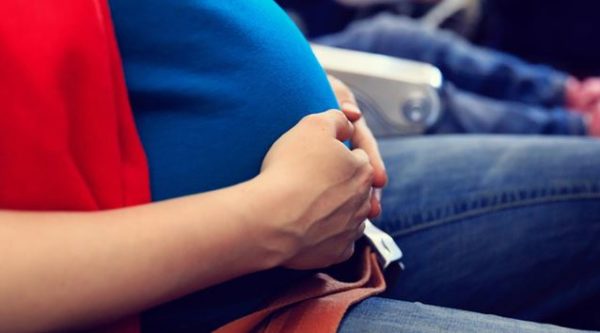Lifestyle
6 tips about flying while pregnant

Apprehensive about travelling with your baby bump? Well, fear not.
Pregnancy is a beautiful journey in a woman’s life and what makes it more amazing is being able to share it with your loved ones.
As we approach peak travel season and look forward to holiday destinations, know that it is possible to travel safely with your unborn baby.
If you’re a mom-to-be and wondering which precautions you should have in place before committing to that flight, here are six things you should know about travelling while pregnant, according to experts at Fedhealth.
1. Is it safe?
According to the medical aid scheme, flying while pregnant is generally considered safe for most women, but it’s worth remembering that in the first trimester you may be nauseous, exhausted and at a higher risk of miscarriage.
“Many women therefore prefer being at home during this time, rather than having to navigate the stresses of an airport and flight,” they said.
2. Does the stage of my pregnancy affect things?
The scheme says the safest time to travel is during the second trimester, provided you aren’t experiencing any complications.
“These include a history of miscarriages, vaginal bleeding, high blood pressure, severe anaemia or diabetes that’s not under control.
“Also, if you’ve had preeclampsia during a previous pregnancy, flying may not be advised. It’s always best to consult with your doctor before booking a trip,” they advised.
3. Do I need a letter?
Fedhealth said that after 28 weeks of pregnancy most airlines will need you to have a letter from your doctor to confirm your due date and that you don’t have any complications, factoring in the date of the return flight as well.
“Generally, if you have a single pregnancy, flying isn’t recommended after 37 weeks, and if you’re carrying twins, you’re usually discouraged from flying after 32 weeks. However, always check your airline’s policy before buying your plane ticket,” they advised.
4. What about insurance?
According to the scheme, it’s strongly advised that you’re fully covered for any emergency, not just for the flight, but for anything that may happen during your trip – this includes travel insurance as well as comprehensive medical aid.
They highlighted that it’s a good idea to carry a copy of your medical records with you and know which hospitals or clinics you would visit at your destination, if you need to.
5. Get comfortable
“Ensure you enjoy maximum comfort on your flight by booking an aisle seat, making it much easier to get up and stretch your legs, as well as visit the toilet more often.”
Flying increases your risk of developing thrombosis and they suggest you buy some Deep Vein Thrombosis (DVT) socks to wear during the flight and wear loose fitting clothing and layers because as your hormones fluctuate, your body temperature fluctuates.
6. Fuel yourself
“Be sure to drink plenty of water and avoid caffeine and alcohol. Pack your own healthy snacks, so you can enjoy small bites more often and keep your blood sugar levels stable.
“Think apples and cubes of cheddar cheese, homemade trail mix, or a tub of hummus and some crackers or veggies.”
Whether you’re going by plane, car or public transport, travelling while pregnant involves its own set of challenges and guidelines.
With advance planning, along with some common sense, you can enjoy your flight and get the most out of that last trip before baby arrives.










